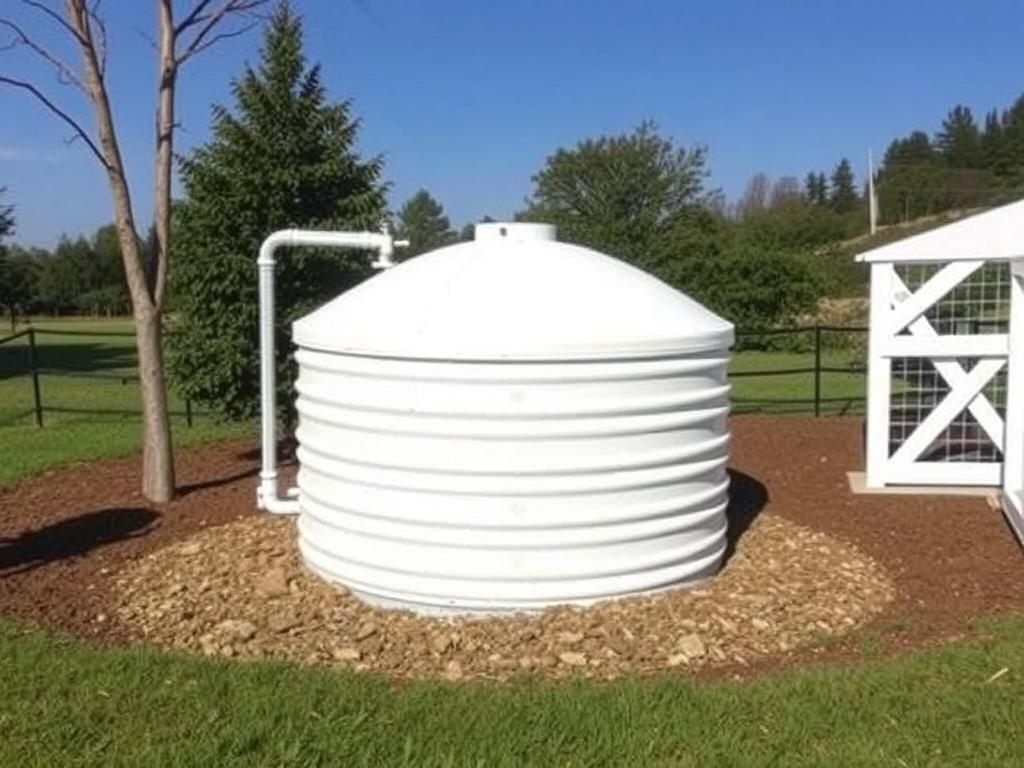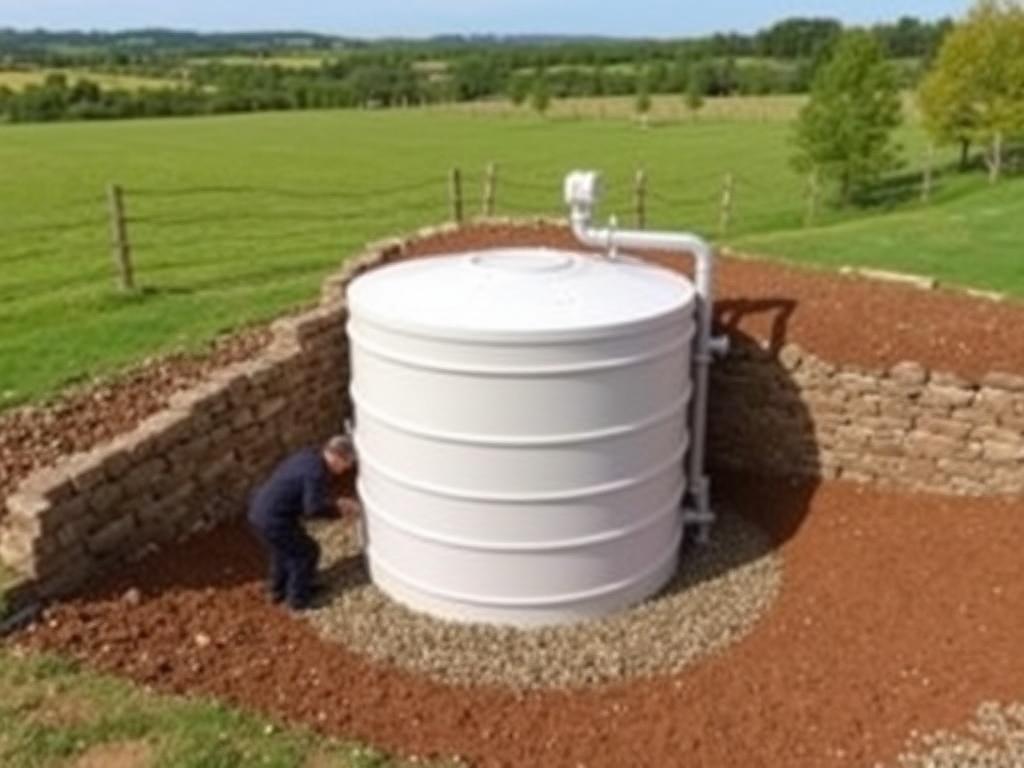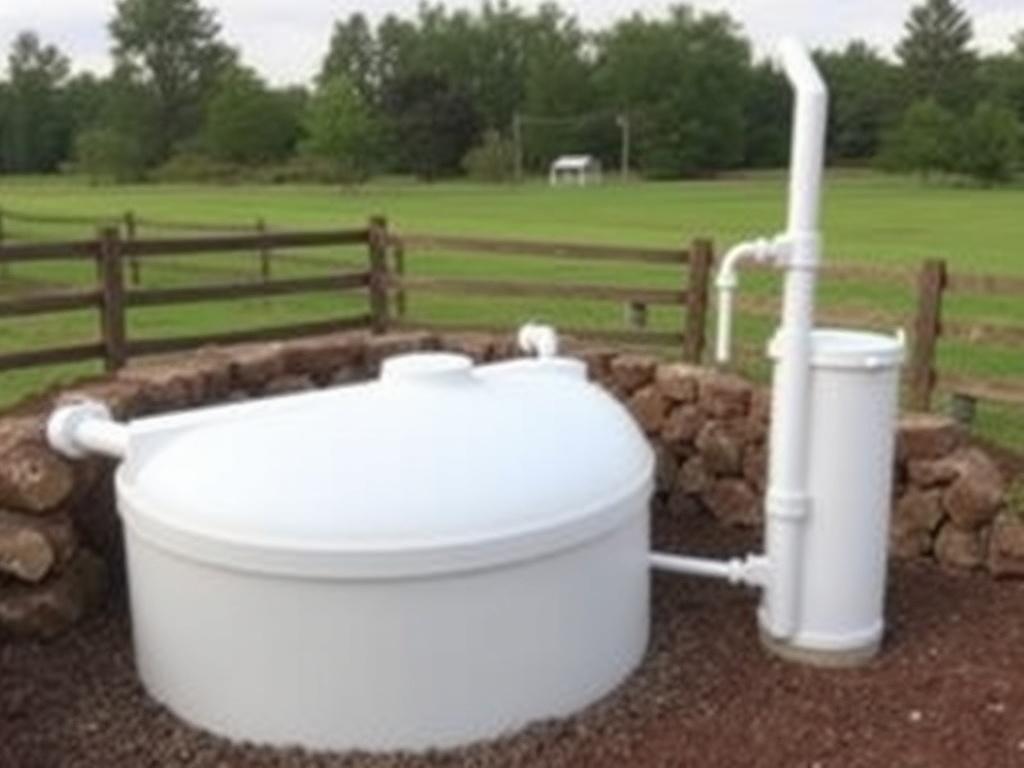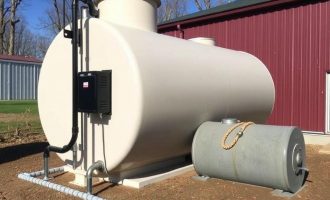- Why Understanding Septic Systems Matters for Wedding Venues
- How a Septic Tank Works for a Wedding Venue
- Typical Components of a Wedding Venue Septic System
- Choosing the Right Septic Tank Size for Your Wedding Venue
- Key Factors Determining Septic Tank Size
- Location and Installation Considerations for Septic Tanks at Wedding Venues
- Important Location Guidelines
- Steps to Install a Septic Tank for a Wedding Venue
- Maintenance Tips for Septic Tanks in Wedding Venues
- Essential Maintenance Practices
- Environmental and Regulatory Compliance for Septic Systems at Wedding Venues
- Typical Regulatory Requirements
- How to Prepare Your Wedding Venue Guests for Septic System Awareness
- Innovative Septic Solutions for Modern Wedding Venues
- Popular Modern Septic Options
- Budgeting for Septic Tank Installation and Maintenance at Wedding Venues
- Common Cost Breakdown
- Conclusion
Why Understanding Septic Systems Matters for Wedding Venues
When planning a wedding venue, there are countless details to consider—from the flowers to the guest list, to the seating arrangements. Yet, one aspect often overlooked is the septic tank system. It may not seem glamorous, but a well-functioning septic system is crucial for the smooth operation of any wedding venue, especially those located in rural areas or places without municipal sewer connections. A septic tank for a wedding venue ensures that wastewater is properly treated and safely disposed of, preventing unpleasant odors, environmental hazards, and embarrassing restrictions during the big day. In this article, we will dive deep into why septic tanks are essential for wedding venues, how they work, and the best practices for maintenance and design tailored to large events.
How a Septic Tank Works for a Wedding Venue
At its core, a septic tank system is a small-scale sewage treatment setup that operates underground. When guests use the restrooms at a wedding venue, the wastewater flows into the septic tank where it’s naturally treated. The solid waste settles at the bottom, while liquid wastewater filters out through a drain field or leach field, which further purifies the water before it returns to the environment.
For wedding venues, the septic system faces unique demands. Unlike a typical household, a wedding venue may host hundreds of guests in a single day. This surge in water usage can strain a septic system designed for low, daily flows. Proper planning and sizing of the septic tank are imperative to avoid backups or failures during peak events.
Typical Components of a Wedding Venue Septic System
- Septic Tank: The main underground container where solids settle and partial treatment occurs.
- Drain Field (Leach Field): A network of trenches or beds where liquid effluent disperses and is further treated by soil.
- Piping System: Pipes that carry wastewater from the venue to the septic tank and from the tank to the drain field.
- Vent Stack: Allows gases to escape safely, preventing pressure buildup and odor issues.
Choosing the Right Septic Tank Size for Your Wedding Venue
One of the most critical considerations when installing a septic tank for a wedding venue is its size. Unlike a household septic tank, which is often sized according to the number of bedrooms or occupants, a venue’s tank must accommodate large volumes of wastewater during short bursts of heavy usage. This means that the tank design needs to consider peak guest numbers, event frequency, restroom facilities, and other water usage such as catering or cleaning.
Key Factors Determining Septic Tank Size
| Factor | Description | Impact on Size |
|---|---|---|
| Guest Capacity | Maximum number of guests the venue can accommodate | Higher guest count needs larger tanks |
| Number of Restrooms | Total toilets and sinks available for guests | More fixtures increase water usage |
| Event Frequency | How often weddings or events are hosted | Frequent events require systems designed for quick turnaround |
| Additional Water Use | Catering, cleaning, and landscaping irrigation | Extra water usage influences tank size and drainage |
A common rule of thumb is that septic tanks for wedding venues should be sized 50-100% larger than those for comparable households to handle the increased load. Consulting a professional engineer or septic system specialist is essential to guarantee that the system can safely handle the peak demand.
Location and Installation Considerations for Septic Tanks at Wedding Venues
Finding the right place to install a septic tank at a wedding venue involves more than just sinking it into the ground. There are multiple environmental and regulatory factors to consider to protect the environment and maintain the aesthetic appeal of your venue.
Important Location Guidelines
- Distance from Buildings: Most local regulations dictate a minimum distance from the venue’s structures to prevent sewage odors from affecting guests.
- Soil Type: The soil’s porosity affects wastewater absorption in the drain field. Sandy soils typically drain better than clay soils.
- Water Table Level: A high water table can interfere with drainage and prevent proper purification.
- Environmental Considerations: Avoid areas near wells, streams, or natural water bodies to prevent contamination.
- Accessibility for Maintenance: Ensure the septic tank has easy access for pumping and inspections.
Steps to Install a Septic Tank for a Wedding Venue
- Site Assessment: Evaluate soil, topography, and local regulations.
- Design Approval: Submit plans and get permits from local health departments.
- Excavation: Dig the hole to the correct depth and size according to the septic tank specifications.
- Tank Installation: Place the tank securely, ensuring level placement and secure connections to pipes.
- Drain Field Setup: Prepare the drain field with proper trenches filled with gravel or engineered media.
- Backfilling & Testing: Fill trenches carefully and test the system for leaks before full operation.
Maintenance Tips for Septic Tanks in Wedding Venues

Once the septic tank is installed, continuous maintenance is key to avoiding costly repairs and interruptions during high-profile weddings. Even the best systems can fail if neglected. Regular care not only prevents backups and clogs but also extends the system’s life.
Essential Maintenance Practices
- Regular Pumping: Wedding venues may require septic tank pumping every 1-2 years, or more frequently if the system is heavily used.
- Monitor Water Use: Avoid wasteful water use during events, as excessive water flow can overwhelm the system.
- Proper Waste Disposal: Do not flush non-biodegradable or hazardous materials down toilets or drains.
- Inspect Drain Field: Watch for signs of failure such as pooling water or unusual odors around the drain area.
- Educate Staff: Train venue employees on best practices to minimize system strain.
Environmental and Regulatory Compliance for Septic Systems at Wedding Venues
Operating a septic tank for a wedding venue means complying with a host of environmental regulations. These rules ensure that wastewater is treated in a way that protects public health and minimizes environmental impact. Failure to adhere to these standards can result in fines, forced shutdowns, or even lawsuits.
Typical Regulatory Requirements
| Requirement | Description | Who Enforces It |
|---|---|---|
| Permit for Installation | Official approval before constructing or modifying septic tanks | Local health or environmental agencies |
| Septic System Inspections | Regular checks to ensure safety and function | Local government inspectors |
| Wastewater Discharge Standards | Limits on contaminants in effluent | Environmental protection authorities |
| Reporting & Documentation | Submission of maintenance and pumping records | Health departments |
How to Prepare Your Wedding Venue Guests for Septic System Awareness
While it’s not necessary to dive into septic details with every guest, making sure that staff and planners understand how to respect the system can avoid potential disasters. Providing clear signage, especially near restrooms and catering areas, helps prevent misuse of plumbing fixtures.
Tips include:
- Use bio-friendly soaps and cleaning products to reduce chemical buildup.
- Encourage guests and staff not to flush paper towels, feminine products, or other inappropriate items.
- Limit excessive water usage during the event where possible, for example, by monitoring catering water use.
- Ensure trash bins are conveniently located so guests avoid flushing waste.
Innovative Septic Solutions for Modern Wedding Venues

Advancements in septic system technology offer wedding venue owners better options to handle wastewater efficiently and sustainably. Some venues opt for engineered or advanced treatment units that provide above-standard treatment levels, enabling safer effluent discharge with less land area required.
Popular Modern Septic Options
| Septic System Type | Benefits for Wedding Venues | Considerations |
|---|---|---|
| Sand Filter Systems | Improved filtration, compact footprint | Higher cost and more technical maintenance |
| Aerobic Treatment Units | Produces cleaner effluent, reduces odors | Requires electricity and regular servicing |
| Constructed Wetlands | Natural aesthetic integration, eco-friendly | Needs large area and ongoing care |
Budgeting for Septic Tank Installation and Maintenance at Wedding Venues

The financial commitment to a septic tank for a wedding venue varies widely but should be viewed as an investment in the venue’s longevity and reputation. Costs include the system design, materials, excavation, installation, permits, and ongoing maintenance.
Common Cost Breakdown
- System Design and Permits: $1,000 – $3,000
- Septic Tank and Materials: $2,000 – $6,000 depending on size
- Installation: $5,000 – $10,000 depending on soil conditions and labor
- Annual Maintenance: $300 – $600 for pumping and inspections
Prioritizing quality installation prevents expensive repairs down the road and assures guests that the venue is hygienic and well-maintained.
Conclusion
Choosing and managing a septic tank for a wedding venue might not be the most exciting part of event planning, but it’s undeniably one of the most important for running a successful, eco-friendly, and worry-free operation. Understanding the system’s workings, sizing it appropriately for large guest volumes, choosing the right location, maintaining it regularly, and complying with regulations all contribute to a seamless guest experience and protect the environment. Whether you are building a brand-new venue or upgrading an existing one, investing time and resources into your septic system will save headaches and maintain your venue’s reputation for years to come. By incorporating innovative technology and promoting best wastewater practices, you ensure that the only thing guests remember about your venue is the magical celebration—not any septic tank mishaps.
Помогла вам статья?






